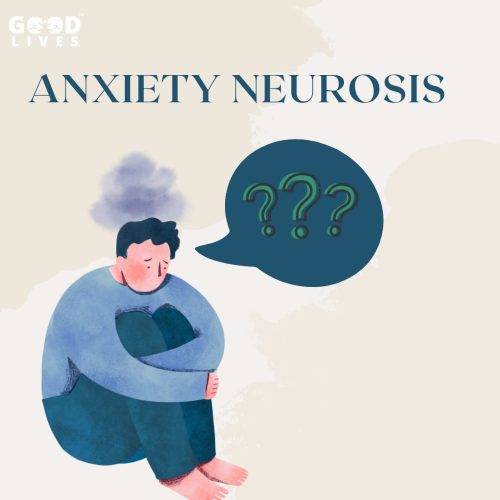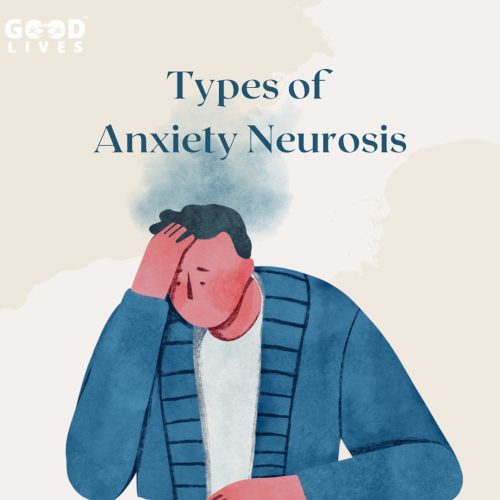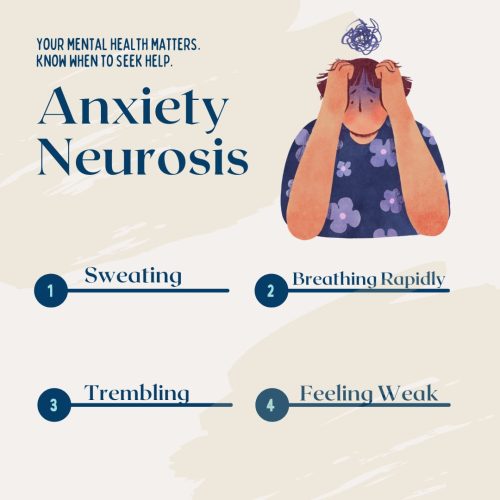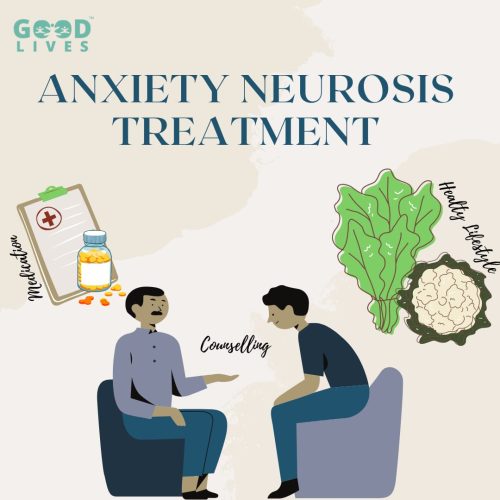What is Anxiety Neurosis?

It is a human tendency to worry about certain things. But have you ever felt uneasy and restless about some decisions? Have you ever been so anxious about the final exams that you felt nauseous or dizzy? Were you ever so afraid in front of a crowd like an on-stage performance that you cannot move a muscle in your body?
If you have experienced anything like the above, then there may be a chance that you have Anxiety Neurosis.
Neurosis was a word introduced by Sigmund Freud, an Austrian neurologist and the founder of psychoanalysis. Neurosis means an unconscious conflict. Anxiety is an emotion, a moment of unease like worry or fear. All human beings worry about something in their lives. Some worry about their business, some worry about what they are going to do with their lives, etc. But some people worry and panic to the point that they have internal turmoil and overreaction towards anticipated events. This is when they are considered to be suffering from Anxiety Disorder.
An anxiety disorder is a mental health disorder characterized by the feeling of worry or fear that is strong enough to interfere with one’s daily life. Usually, medical students refer to anxiety disorder as anxiety neurosis.
Thus, anxiety neurosis can be described as an unconscious conflict of emotions leading to unexpected and unpleasant feelings of dread & fear over expected events.
Anxiety Neurosis Types

There are 5 major types of such disorders:
- Generalized Anxiety Disorder (GAD): Those suffering from GAD experience persistent and exaggerated feelings of worry and fear even when there is little or no reason. They worry excessively about common situations several times a day for several months. They are aware that the problem is not so big but they are unable to calm themselves down.
- Obsessive-Compulsive Disorder (OCD): Those suffering from OCD have certain repetitive behaviors and unwanted thoughts. Certain tasks like washing hands, cleaning, counting, etc. are done excessively. Performing these tasks gives them relief for some time only but they are always on the verge of breakdown if unable to perform said tasks.
- Panic Disorder: Those suffering from panic disorder experience brief panic attacks of terror and restlessness accompanied by sweating, breathing difficulty, nausea, dizziness, etc. The main cause of the panic disorder is not always clear. But it might be the fear of the unknown, irrational thoughts, stress, or something else.
- Post-Traumatic Stress Disorder (PTSD): Those suffering from PTSD had been subjected to some terrifying experience either experiencing it or witnessing it. Common symptoms include flashbacks, violent and angry behavior, avoidance, etc. Soldiers, rape victims, people witnessing natural calamities, abuse, etc. often suffer from this disorder.
- Social Phobia: Those suffering from social phobia are often self-conscious about themselves in a social situation. It may be limited to one not being able to speak in front of a crowd or not being able to eat or drink in front of others. But in some cases, individuals have severe symptoms of anxiety and panic whenever they are around others.
Causes or Triggers
Anxiety neurosis causes are not known completely. It is observed that for some anxiety is linked to medical problems like Heart disease, Diabetes, Thyroid problems, etc. Sometimes it is caused as a side-effect of a medicine. It can also be triggered by traumatic life experiences like wars, natural calamities, life-threatening illnesses, etc. There can be a genetic factor to anxiety as well.
Symptoms

Anxiety neurosis symptoms depend upon the type of the disorder. Many anxiety disorders have some specific symptoms. While there are specific symptoms, Anxiety neurosis has some common symptoms which are:
- Sweating
- Palpitations or racing of the heart
- Breathing rapidly (hyperventilation)
- Trembling
- Feeling weak or tired
- Feeling nervous, restless, or tense
Anxiety Neurosis Diagnosis
Anxiety neurosis can be diagnosed on the basis of symptoms, triggers, and an individual’s personal and family medical history. Diagnosis should be done by a mental health professional only. There are no laboratory test present that can diagnose anxiety. However, there are psychometric evaluations that can help in giving you a correct direction about the diagnosis of such a disorder.
Psychometric evaluations are available on GoodLives
so click here and start your evaluations now!
Anxiety Neurosis Treatment

First of all, the causes for developing Anxiety Neurosis are not definite, but there are certain ways in which one can reduce its impact in daily life.
- If an individual finds themselves getting overly anxious, worried, or panicked in anticipated situations for a while, go to a mental health professional to talk.
- If an individual is going through depression, as easy as it feels to dive into the world of alcohol and drugs, try to hold on and talk to a friend, family member, or mental health professional.
There are two major ways in which the treatment process for such disorders takes place. The two ways are:
- Psychotherapy:
It is an effective treatment of anxiety that involves working with a professional therapist to reduce symptoms of anxiety. The most effective form of psychotherapy is Cognitive Behavioral Therapy (CBT) in which one learns skills to improve their reactions to the situation. It also includes exposure therapy which helps individuals face their problems and learn to cope with them in an observed environment. - Pharmacology (Medication): Medication is used to reduce the symptoms of anxiety. Beta-blockers are often consumed after an anxiety or panic attack to lower blood pressure and other physical symptoms of anxiety.
Different things work for different individuals. Since every individual reacts differently to a course of treatment, the best way to decide might take some time and trials. Some individuals might get better through medications only and some might get better through psychotherapy only. But it is often observed that the best course of treatment is a combination of the two.
How to Combat Symptoms of Anxiety Disorders?
It is often assumed that medications can be the only way to cure the symptoms and it might be true as far as physical symptoms are concerned. But an anxiety disorder is a mental health disorder. Individuals suffering from this have deep-rooted emotional symptoms as well. To combat such symptoms of anxiety disorders there are certain things that an individual can do by themselves.
- First thing is to learn about the disorder that they are suffering from and clear all their doubts and queries with their mental health professional.
- Sticking to a healthy food and sleep schedule and making it a priority might help them cut down their stress and improve their mood.
- Venting out their views, worries, etc in any form can be very helpful for the individuals. They are often advised to create a time frame to worry about. In this method, an individual takes half an hour or one hour to just vent out all the worries of their day together to a person, in a voice note, etc. instead of worrying about situations at different times of the day.
- Writing all their worries & thoughts in a journal might help them relax.
- Being part of self-help or self-supporting groups will help the individual understand that they are not alone, giving a sense of strength to them.
Things to Keep in Mind
About 4% of the population of world suffers from some type of anxiety disorder. It is important to remember that worrying itself is not a problem but when it becomes so severe that it affects the daily life of an individual then they need to visit a mental health professional. It is difficult to live with anxiety and neurosis as living in a world of constant worry can be exhausting and scary. Anyone can overcome anxiety disorders with proper care and treatment, and live their life to the fullest.
Taking the first step by asking for help from a mental health professional is difficult but important. If you feel you need to talk to someone about how you are feeling, talk to a therapist now using Goodlives.
0 Comments